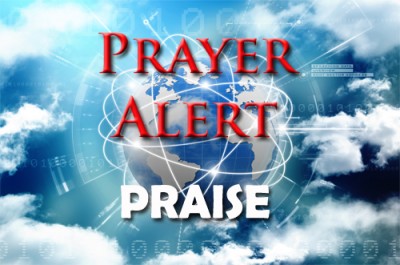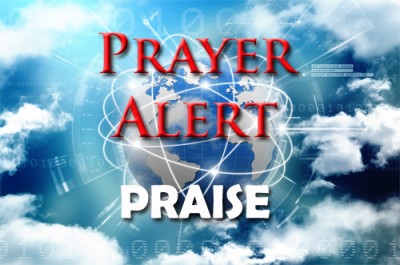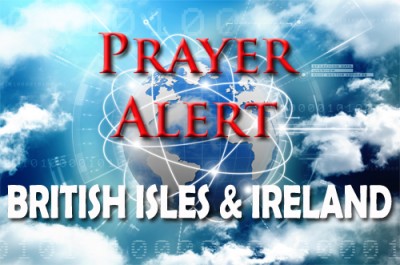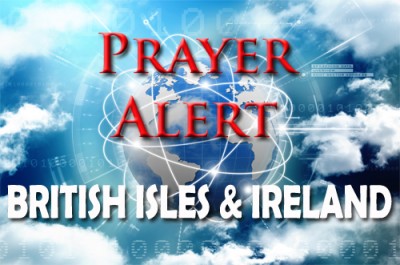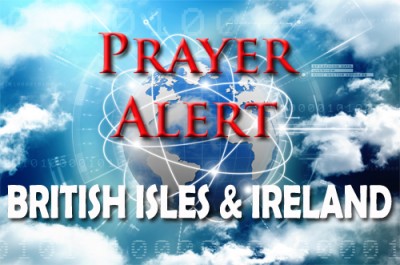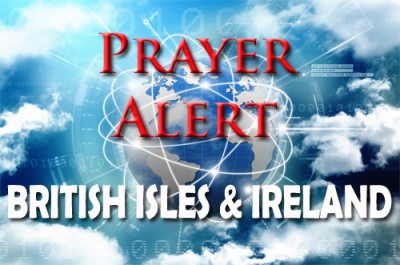North Korea: missionaries on the border
06 Apr 2018Missionaries in north-eastern China are still engaged in the dangerous work of spreading the Gospel across the border to North Korea, even though at least ten missionaries and pastors have mysteriously died in recent years. They keep at it because they believe their converts will help change religious practice in the cloistered North, which equates Christianity with US-led Western imperialism. The border missionaries provide their North Korean visitors with room and board, and those escaping with places to hide. In return, they ask them to memorise Christian prayers and covertly share what they've learned when they return home.
Yulia Skripal getting stronger
06 Apr 2018In the midst of a depressing and sometimes frightening diplomatic crisis, with international media and government accusations and statements, the UK police issued a positive statement on 5 April. It was a message from Russian spy Sergei Skripal's daughter Yulia: ‘I woke up over a week ago now, and am glad to say my strength is growing every day.’ She also said she was grateful for the many messages of goodwill and the care she had received. Mr Skripal, 66, remains critically ill but stable.
4,050 special needs children deprived
06 Apr 2018National Education Union leader Kevin Courtney said official statistics showed 4,050 special needs pupils did not have a suitable school place in 2017 in England, up from 1,710 in 2016. Lack of designated funding means growing numbers of our most vulnerable children are left without appropriate support in a suitable school environment. The Government said money for schools and special needs was protected, and councils are allocated funds for special needs in both mainstream and special schools through their ‘high needs’ budgets. However, shortfalls in these budgets leave them ‘cash flat’ (the total does not account for inflation), while the number of pupils needing special programmes has been growing. Pupils with autism, epilepsy, cerebral palsy, ADHD, and other learning or physical disabilities need extra equipment and trained support staff to enable them to reach their full potential.
Prison Fellowship
06 Apr 2018Prison Fellowship, a Christian organisation, is part of a global movement of people motivated by their faith to transform lives and communities by bringing love in action, acting with justice and showing mercy. They write: ‘Our dream is ‘to see every life in prison transformed! Our mission is to show Christ’s love to prisoners by coming alongside them and supporting them. We seek through prayer and practical care to help, support, and develop a Christian ministry to prisoners and their families.’ They do this through a network of volunteers - currently over 2,400 across England and Wales. Prayer is the basis for all that they do, and where it all started. All activities are underpinned by prayer through PF groups that meet monthly.
Christian media
06 Apr 2018It is fair to say that movies with Christian themes are getting better, and seeing box-office profits. The successful ‘I Can Only Imagine’ has so far made $38 million. The play ‘The Case for Christ’ made $15 million profit. On Easter Sunday, the Broadway musical ‘Jesus Christ Superstar’ returned on NBC as a live television event. In the UK, Timeless International Christian Media LLC produce and distribute Christian videos; and True Films are producing British feature films with core Christian values. Christian home entertainment is edifying and challenging the viewer. We are living in a culture where we spend more time than ever looking at a screen for our information and relaxation. Pray for more Christians to enter film production. See
Iraqi nun denied UK visa
06 Apr 2018When IS took over a Dominican convent in the Nineveh plains, Sister Ban Madleen fled to Erbil and set up kindergartens for the refugees’ children there. She has a sister living in the UK who has now become sick. To visit her, she needs a Home Office entry visa. However, immigration officials refused the visa because she had not provided confirmation that the Dominican sisters would fund her visit, and they were not satisfied that she is ‘genuinely seeking entry for a permissible purpose’. Rather than allowing her to provide the necessary evidence, they said, ‘There is no right of appeal or right to administrative review’. They acknowledged the importance of family visits, and agreed that when she last visited the UK (in 2011) she complied with visa terms. However, they also noted that she had not visited since then, failing to recognise that there might be valid reasons for this.
Freedom of speech in universities
06 Apr 2018A report by the Joint Committee on Human Rights details how freedom of speech at universities is being restricted. It mentions ‘safe spaces’ as a limit on speech, as well as confusion around the Prevent programme and unnecessary red tape in organising external speakers. Many groups had cancelled events, had guests banned, or were put off organising events because of the hurdles they had to overcome. CARE, in a submission to the committee, said it was particularly concerned about how current definitions of extremism were being wrongly applied to nonviolent individuals and groups, instead of to those who could draw people into terrorism. This has led to many speakers and groups being ‘no platformed’ and to their views being excluded from public debate because they were considered offensive by some, particularly people of faith.
Child poverty in the UK
06 Apr 2018The UK is the sixth richest country in the world, yet poverty affects one in four children. Growing up poor means children miss out on warm clothes, school trips, or even having friends over for tea. Poverty impacts children’s health and educational outcomes. Leaving school with few qualifications translates into lower earnings over the course of a working life. Poorer childhood health results in more complicated health histories later in life, again influencing earnings and overall life quality. On 3 April the BBC reported that malnourished pupils with grey skin are filling their pockets with school canteen food due to poverty, and hunger is particularly apparent after the weekend. A Nottinghamshire headteacher said, ‘When you take poorer children to an event, you see the difference between them and children of the same age from affluent areas. It's the grey skin, the poor teeth, poor hair, they are thinner.’ Children are neglected because their families can’t afford food, heating or even bedding. See also
